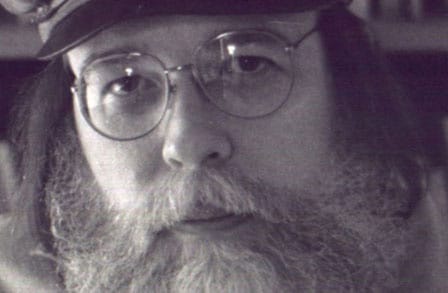Norman Dubie

The author of more than 20 books, Norman Dubie has seen his work widely anthologized (in the Norton Anthology of Modern Poetry and elsewhere) and translated into more than 30 languages.
Dubie was born in Barre, Vermont. His mother was a registered nurse who shared compassionate, detailed stories of death and suffering at the dinner table, and his father was a radical minister. Channeled voices—historical, unidentified, or televised—are central to Dubie’s poetry. As poet and critic David St. John observes, “Often, in a Dubie poem, we find the natural, the violent, and the intimate all conjoined in a single poetic whole. There is a melancholy of detail, often painterly in ambition and scope, and through the disruption of those details—sometimes a syntactic disruption (Dubie is one of the most complex and yet absolute lyricists of the moment)—the reader finds the vision both in and of the poem being dramatically transformed.”
Dubie wrote his first collection of poetry—Alehouse Sonnets (1971), a conversation with 19th-century English essayist William Hazlitt (a book Dubie has since repudiated)—in a blizzard as a graduate student at the Iowa Writers’ Workshop, and a new collection followed every year or two thereafter. After two prolific decades, in the early 1990s Dubie embarked on a period of silence that lasted nearly 10 years. During this time his attention turned to Tibetan Buddhism, a practice that continues to shape his writing. He emerged from this silence with his critically acclaimed The Mercy Seat: Collected & New Poems (2001), which won the PEN USA Prize in poetry. Writing for the Boston Review, critic Ian Tromp praised The Mercy Seat, “which, through its careful inhabitations and remarkable tenderness, offers the universe: clarified, humanized, enlarged.”
Winner of the Bess Hokin Award from the Modern Poetry Association, Dubie has also been granted fellowships from the National Endowment for the Arts, the Guggenheim Foundation, and the Ingram Merrill Foundation.
In 2002 and 2003 he published online a 400-page epic poem, The Spirit Tablets at Goa Lake. In composition, Dubie spoke the poem aloud to the poet Laura Johnson, who inserted line breaks as she transcribed.
Dubie taught at Arizona State University, where he helped to found its MFA program, until his passing in 2023.


